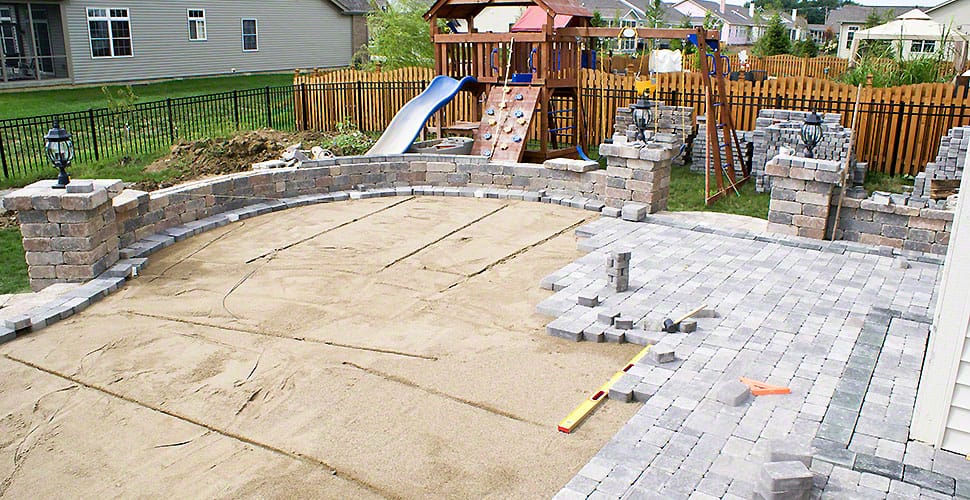The time we spend outdoors with our family on sunny days is equally as important as the time spent indoors. This makes outdoor landscape a must have for lots of families, and a patio seems to be the perfect option. Since building a patio isn’t an insignificant thing, you should take your time and read the below mentioned pros and cons of paver patios before contacting a patio builder.
Pros of Paver Patios
Durability
While all of the average patios can last a long time, the exact lifespan mostly depends on the materials you choose to apply when building the patio. Remember that patio materials like wood tend to have the shortest lifespan, the concrete ones can last a bit longer, and a stone or brick patio can last for as long as 25 years before showing major signs of wear and tear. On top of this, the stone and brick patios can also be easily maintained, as stains can be removed easily, and the materials are hard.
So, we can clearly draw a conclusion here. If you have plans to stay in your house for a long time to come, choose the stone or brick patio. These are natural products that work the best for your property, and are the most durable as well. Keep in mind that for a durable and long lasting patio, you’ll need the materials to be properly laid down in the ground by an expert.
Weather Proofing
One of the concerning things about outdoor constructions is that they are always exposed to extreme weather events. For example, heavy rain can take away some of the material used in the patios, and this can weaken its structure over time. Heat can cause the patio unit to expand, which can have its own consequences, similarly, the cold weather causes the material to shrink.
The standard paver patios with high quality materials used in their construction can easily overcome these hard weather events. Right method of installation can also help you a lot in this scenario.
You should know that no matter how high-quality the paver patio material might be, it will suffer slightly from the weather changes over time. However, this is the least weather-affected type.
More Designing Options
Since paver patios have lots of different materials used in their construction, you actually have lots of different choices when it comes to choosing the patio design. A huge variety of designs means that you’ll have more designing options to choose from within your budget.
You can consult an expert and get really cool designs made on your paver patio.
Cons of Paver Patios
Expensive
While you can enjoy the design versatility and other benefits that the paver patios bring with them, they are of course on the expensive side. These patios are best suited for perfectly leveled grounds, you can also save some money on leveling the ground this way.
Complex Installation Process
As compared to the concrete patio that has one or two solid slabs, the paver patios take more time to get built as compared to the rest.
There are like a dozen and a half processes that need to be completed before achieving a perfect paver patio.
Weed Growth
As we all know, paver patios are made by joining different smaller units. This means that there are lots of little gaps in-between those slits. The sand can easily be washed out when a heavy rain comes.
The weed seeds floating around in the air can actually settle down inside these slits, and can capture some humidity to grow weeds and ruin the looks of your paver patio. Not only this, but these weeds can overgrow to cause cracks inside the paver patio, which can lead to a premature wear and tear of the structure.
Capital Intensive
When we move from the cheap options to the more luxurious ones, the process shows a sudden surge, and that is bad news for an average homeowner. Some of the most luxurious patios might cost you a fortune for full customization.
These were some pros and cons of paver patios that you can consider when trying to build a nice outdoor structure for your family to enjoy. You should also ask the patio contractor Long Island about which material would be best for your place.



